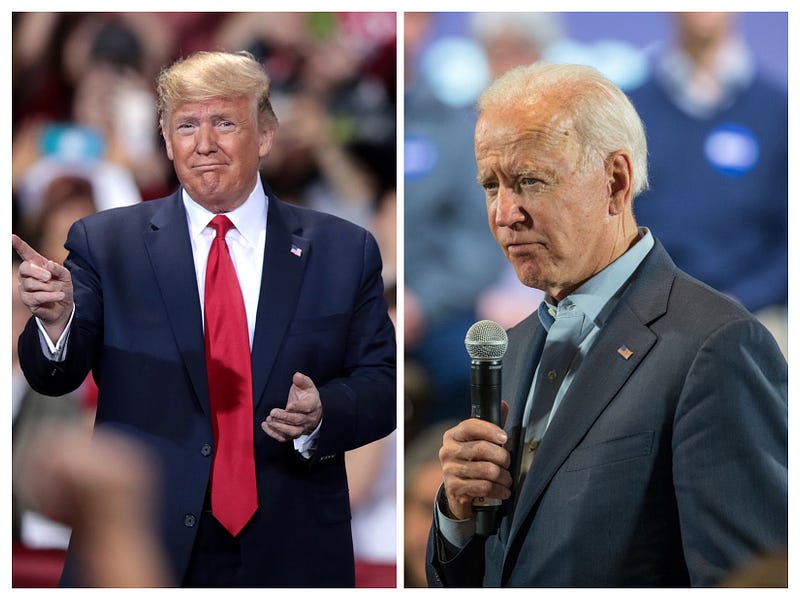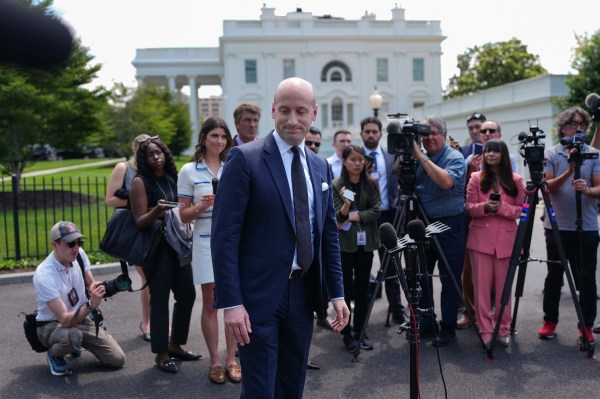The weirdness of what I call the pandemic time-space continuum really hits home on a holiday weekend. Weeks drag by and time moves slowly, but then you look up and a whole month has passed. We should be in the middle of the NBA playoffs, but we aren’t. We should be a couple of months into the major-league baseball season, but our memories are stuck on spring training.
And now we have a weekend that should be full of parades and picnics and the first dip in the swimming pool. It’s the unofficial start of summer. Sure, some people can go to the beach. But it really doesn’t feel like summer, even if it is sunny and 80. (It is here, and I’m thankful for that.) In fact, even as things open up, sometimes it feels like “normal” is farther away than ever. Except for the yard work, that hasn’t changed. (And that’s where you’ll find me this weekend.)
Hey, but at least politics are getting back to something like normal. Joe Biden committed his first big gaffe of the campaign, telling the host of the syndicated radio show The Breakfast Club that, “If you have a problem figuring out whether you’re for me or Trump, then you ain’t black.” And President Trump’s press secretary, Kayleigh McEnany, appeared to reveal his private bank account information when she held up a check at a press briefing to show that he was donating his salary for the quarter to the Department of Health and Human Services.
Since Joe Biden became the presumptive nominee, it has almost felt like the presidential campaign was on hold. No rallies, no handshakes, no kissing babies. But Joe Biden is conducting his search for a running mate, and news came out this week that Amy Klobuchar agreed to be vetted. And while we’re months away from a debate between candidates, the biggest debate at the moment is whether we should all be voting by mail in the fall. Republicans are resisting statewide efforts to make such voting easier, and Trump has tweeted his displeasure with the idea. We actually covered this topic last month, and Rachel Kleinfeld put a lot of fears about fraud and partisanship to rest. At times it feels like a silly thing to fight about, but it’s safe to say that it won’t be the silliest issue of this campaign.
Now, on to the best of our stuff from the week.
It’s the high holy season for legal nerds. The Supreme Court is done hearing arguments, either in person or via conference call, and now it’s time for the decisions. Sarah Isgur lays out all you need to know about the biggest decisions we’ll be reading about between now and the end of June. The court will cover whether Title VII of the Civil Rights Act, which “bars private employers from discriminating on the basis of ‘sex,’ necessarily includes sexual orientation or transgender identity”; whether the Trump administration can rescind the Obama-era DACA protections for those who came to the U.S. illegally as children; and whether the Consumer Financial Protection Bureau is constitutional. There’s lots more, and Sarah even wrote up a handy glossary of legal terms for the uninitiated.
At the point when college campuses closed abruptly or told students not to return from spring break, we were still familiarizing ourselves with the full ramifications of the pandemic, and everyone muddled through the best they could. But now schools are faced with a dilemma about how to proceed in the fall: Welcome students back to campus, which presents certain health risks, or continue with virtual learning, which tends to produce a mediocre experience at best. While these are obvious questions for administrators to be asking themselves, Professor Samuel J. Abrams suggests that maybe schools should also be asking students. What if, instead of two unappealing options, students just sit this year out?
William Barr and FBI Director Christopher Wray announced a breakthrough into the investigation of Mohammed Saeed Alshamrani, the shooter who killed three servicemembers at Naval Air Station Pensacola in December and who was apparently acting on behalf of Al-Qaeda in the Arabian Peninsula. In Vital Interests this week (members only), Thomas Joscelyn looks not just at Alshamrani’s history with AQAP but the extent to which Al-Qaeda has been able to infiltrate the U.S. in the last 10 years. And he addresses the issue of whether Apple should be willing to aid law enforcement in breaking into phones of suspects.
Michael Anton’s “Flight 93 Election” was, in the eyes of David French the “single-most influential essay of the entire election cycle” in 2016. It argued Donald Trump had to be elected to ward off the existential threat to America presented by Hillary Clinton. Well, now the Democrats are having their turn. Case in point? Katha Pollitt wrote in The Nation that she would “vote for Joe Biden if he boiled babies and ate them.” David, in a members-only French Press, is alarmed by … all the alarmism. “America faces enduring challenges, but it possesses a remarkably resilient system of government,” he writes It has the capacity to absorb an immense diversity of viewpoints, channel disagreements through a federalist system that allows for cultural variation and political diversity, and it’s resistant to truly seismic change in the absence of political consensus.
And the best of the rest:
-
China is a popular target these days, but not just because of its role in the pandemic. Danielle Pletka reports on how the U.S. struggles to deal with rogue foreign companies—many from China and Russia—have access to the U.S. financial markets but fail to comply with SEC audits.
-
The GOP controls the White House and the Senate, at least until January. So why is the latest proposal for economic relief coming from the Democrats? While Nancy Pelosi’s $3 trillion HEROES Act doesn’t stand much of a chance in the Senate, Abby McCloskey suggests that it’s on the Republicans to offer up a better alternative.
-
Andrew Egger checks in with the latest on testing, and the good news that wasn’t so good. While reports of testing increases have been cheered, it turns out that some states and the CDC were reporting not just coronavirus tests but also antibody tests. That is misleading.
-
On Thursday, Jonah, David, Sarah, and Steve did a Zoom chat that we live-streamed on video to paid members. If you are a member and couldn’t join in to hear them talk about politics and board games—not to mention a a few barks from Pippa and Zoe—you can see it here. You should have an email with the password. We’ll be doing more of these in the future so please consider joining if you aren’t already a member.
On the pods: On Advisory Opinions, David and Sarah devoted both of their weekly episodes to “Supreme Court nerdery.” On the flagship Dispatch Podcast, the gang discussed the debate over unemployment benefits and offered some VP picks for Joe Biden. And on The Remant, Jonah discusses all things polling with Amy Walter of the Cook Political Report.







Please note that we at The Dispatch hold ourselves, our work, and our commenters to a higher standard than other places on the internet. We welcome comments that foster genuine debate or discussion—including comments critical of us or our work—but responses that include ad hominem attacks on fellow Dispatch members or are intended to stoke fear and anger may be moderated.
With your membership, you only have the ability to comment on The Morning Dispatch articles. Consider upgrading to join the conversation everywhere.